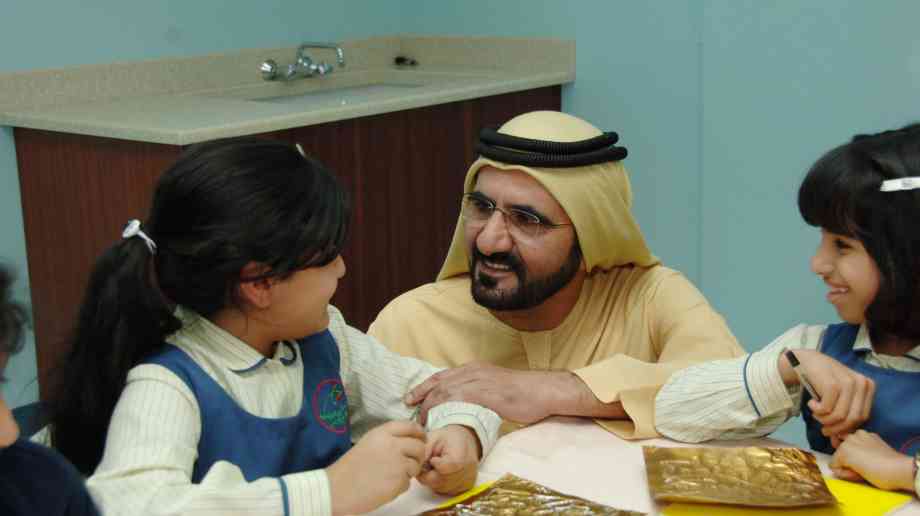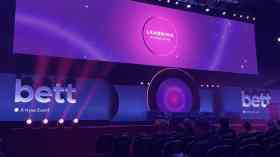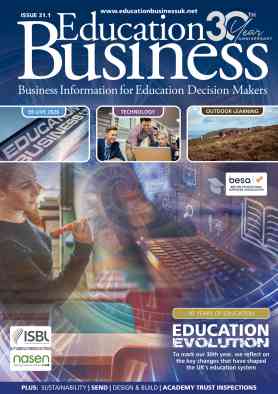
The United Arab Emirates: Investing in Education
Back in 2010, the United Arab Emirates (UAE) launched the Vision 2021 project, a strategy for the key development issues across the nation. As part of this, the UAE has implemented its plan for "First-Rate Education", which outlines dramatic reforms to the curriculum, a strategy for improving teaching through professional development and a commitment to encouraging the development of 21st Century skills in schools.
In 2016, 21.2 per cent of the UAE’s national budget was dedicated to the education sector, with a view to revolutionising the curriculum and developing new learning programmes. This included several key goals: the improvement of the Emirates’ TIMSS and PISA rankings; increasing pupil enrolment in the early years; enhancing Arabic language skills amongst young people; and ensuring quality in teaching and leadership.
In working towards these goals, two strands of the strategy have emerged: economic factors and cultural considerations.
Improving economic growth through education
ICT investment in the UAE education sector amounted to over $15 billion in 2014, reflecting the importance of science, technology, engineering and maths (STEM) in the Emirates’ national development. Industry is changing rapidly, and the emphasis on 21st Century skills has meant that huge changes in the curriculum have been made to ensure that the next generation of students are capable in using the new technologies that are shaping lives worldwide.
One of the projects taking place at the moment is the establishment of 122 Innovation Libraries in schools across the UAE, creating spaces in which students can explore a range of digital media and communication resources alongside curriculum books. In addition, one of the crucial elements of this strategy is getting companies, universities and schools working together to foster creative thinking towards business, technology, and national development. A great deal of investment has been allocated through the Science, Technology and Innovation Policy to boost the amount of scientific research and entrepreneurial activities in businesses, and partnerships between companies and educational institutions have been encouraged to establish expertise in unique areas.
Young people between the ages of 15 and 35 are the main target for the UAE’s innovation strategy. The Emirates Foundation looks to guide, inspire and empower young people as entrepreneurs, eager to take advantage of the technology at their disposal and to take risks as part of the digital revolution. However, there is still more that can be done to provide the ideal landscape for young people to get involved with entrepreneurship and starting their own businesses.
The first UAE Innovation Week was launched in 2015, encompassing hundreds of events. Such events included workshops and conferences, hackathons and competitions to encourage young people to think creatively and become problem solvers. Following the success of 2016’s Innovation Week, where 1,250 creative thinking events were held across the UAE, it was decided that February 2018 would become Innovation Month, to encourage more schools, businesses and individuals to consider the prospects of innovation, as well as attracting more international interest in the celebrations.
One of the crucial elements of this strategy is getting companies, universities and schools working together to foster creative thinking towards business, technology, and national development. A great deal of investment has been allocated through the Science, Technology and Innovation Policy to boost the amount of scientific research and entrepreneurial activities in businesses, and partnerships between companies and educational institutions have been encouraged to establish expertise in unique areas.
Not only do these projects help to build students’ skillsets, but the experiences also enhance the reputation of the industries they can interact with in this way. Companies getting involved with schools and universities are able to present their industry as an appealing career path, increasing the number of young people who look to train towards them in the future. This feeds into the UAE’s vision for an improved economy, by developing a diverse workforce that is competitive worldwide.
Improving cultural heritage and national pride
Linking into the technological aspects of this, and forming a strand of national education as a whole is a reinvigorated encouragement of cultural pride. While it has been reported that there are 450 million Arabic speakers in the world, very little online content is presented in the language (at around three per cent). Part of the UAE’s innovation strategy is to encourage Arabic-speaking students to shift this balance to be more representative.
The main cultural strand of development works to encourage a sense of national identity in young people, while at the same time encouraging them to be part of a diverse and multi-cultural society. Each year, Emiratis celebrate UAE National Day on November 28, where pupils are encouraged to celebrate their UAE heritage through performances, songs, and national costume. Running in parallel to this, schools are also celebrating internationalism. For example, Nibras International School in Dubai has had an “International Day” since 2005. With 17 separate nationalities making up the student populace, they teach each other languages and explain elements of their own cultures. Through this, the UAE intends to promote tolerance, encourage national pride and tackle extremism.
Education in the UAE has made large strides towards a more innovative future for Emirati citizens since the start of the Vision 2021 programme, and the next four years are set to see even more changes and opportunities both nationally and internationally. As one of the fastest improving nations worldwide, the UAE should be a focal point in education as we move into the future.
Further Information:Latest News
26/01/2026 - 10:40
The proposed Scottish Budget for 2026-27 commits up to £200 million to the Scottish Attainment Challenge.
26/01/2026 - 10:24
The Welsh Government has set out the key challenges facing tertiary education in Wales and has launched a call for evidence to help address these challenges.
23/01/2026 - 10:47
Almost half (45%) of school leaders needed mental health and well-being support in just a year, a new survey from union NAHT has found.
22/01/2026 - 10:44
The film, ‘The Lunch They Deserve’, seeks to focus the nation on the need for better school food standards before the provision of Free School Meals is extended.
21/01/2026 - 11:24
Speaking at the Bett UK Conference, the Education Secretary said the EdTech Testbed will recruit schools and colleges to put the latest tech and AI tools through their paces.







